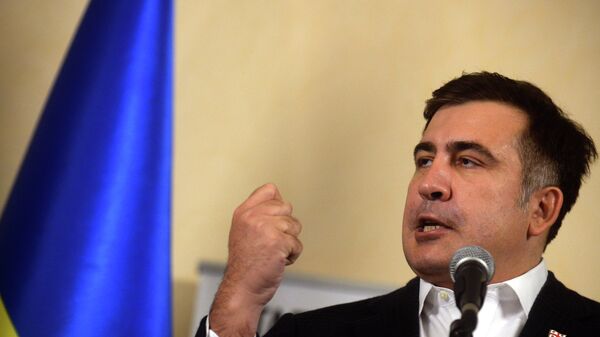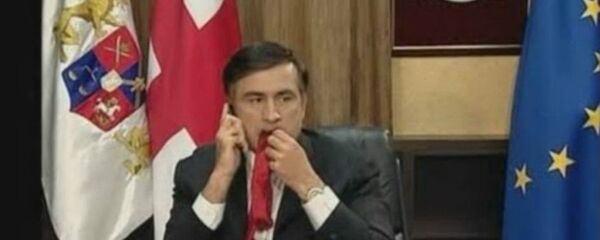Former Georgian President Mikheil Saakashvili received an unpleasant greeting in Athens, Greece on Sunday after being attacked by unknown assailants during a meeting with Georgian emigrants.
Purported footage of the attack shows a young man striking Saakashvili repeatedly in the head outside a building where he was expected to speak. After police sent to protect him broke up the fracas, Saakashvili met with supporters and told him about his plans to return to Georgia, and later went on Facebook to accuse his opponents in Georgia of organising the attack.
“Several people in masks in a thief-like manner crept up on us and tried to attack,” the politician declared.
“Greek special forces used tear gas and several women who were part of the large mass of people were injured. I would like to address [Georgian Dream party chairman Bidzina] Ivanishvili and [Tbilisi Mayor Kakha] Kaladze: Don’t you have anything else to do? It won’t help you,” he added.
Saakashvili served as Georgia’s president between 2004 and 2013, swiftly leaving the country immediately after his party’s election defeat and settling in New York State. In 2015, Ukraine’s post-Maidan coup President Petro Poroshenko, a former school chum of Saakashvili, invited him to serve as governor of Odessa, and granted him Ukrainian citizenship, which led to his being stripped of his Georgian passport. In 2017, the two men had a falling out, and Saakashvili was stripped of his Ukrainian citizenship as well, becoming a stateless person. In 2018, he was deported to Poland, and later appeared in the Netherlands, where he was granted permanent residency on grounds of reunifying with his Dutch wife Sandra Roelofs. In May 2019, Ukrainian President Volodymyr Zelensky restored Saakashvili’s citizenship, prompting him to return to the country. In 2020 he was appointed chief of the National Reform Council.
Despite the charges against Saakashvili, Georgia’s United National Movement party nominated him for the post of prime minister on 6 September. The politician said he would agree to head an emergency government, but only for a two-year period. With no Georgian citizenship and outstanding warrants against him, it’s not clear how he plans to get back into the country. Georgians will go to the polls for parliamentary elections on 31 October.



